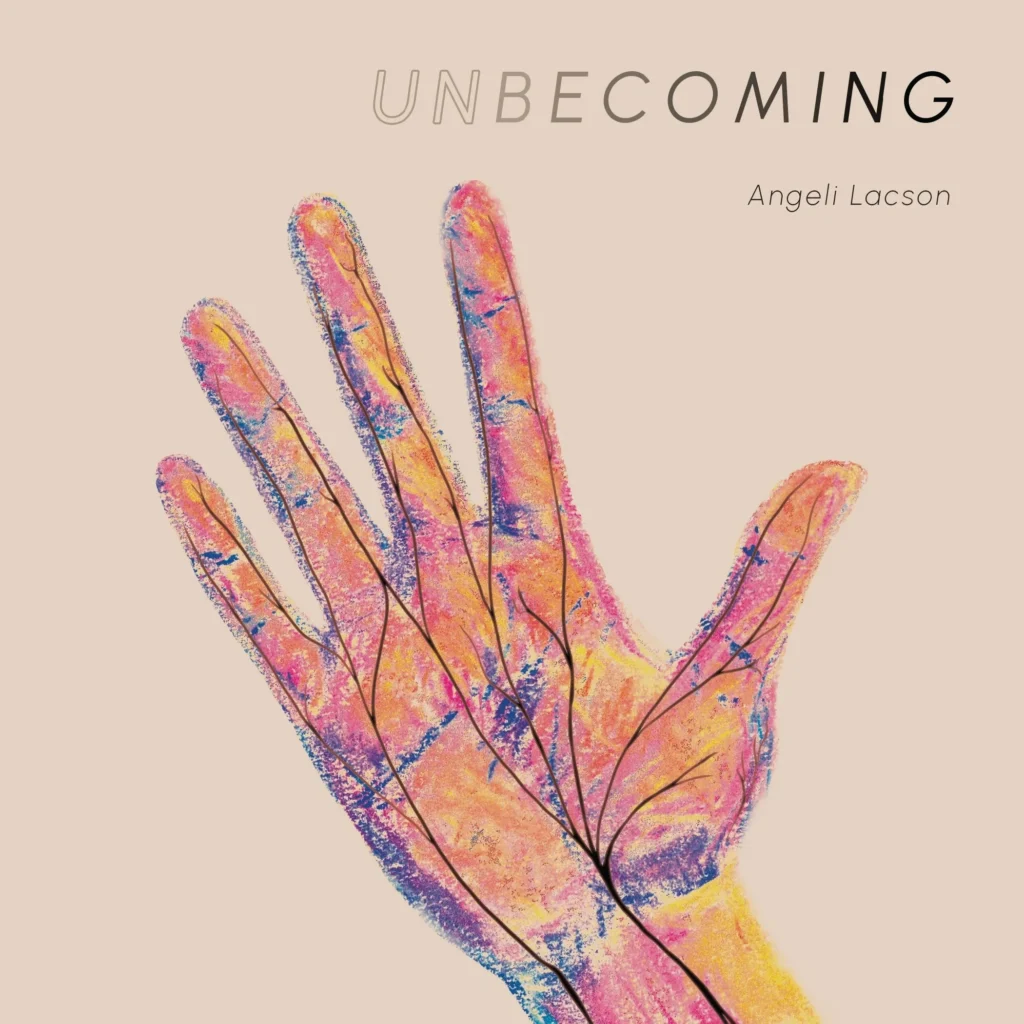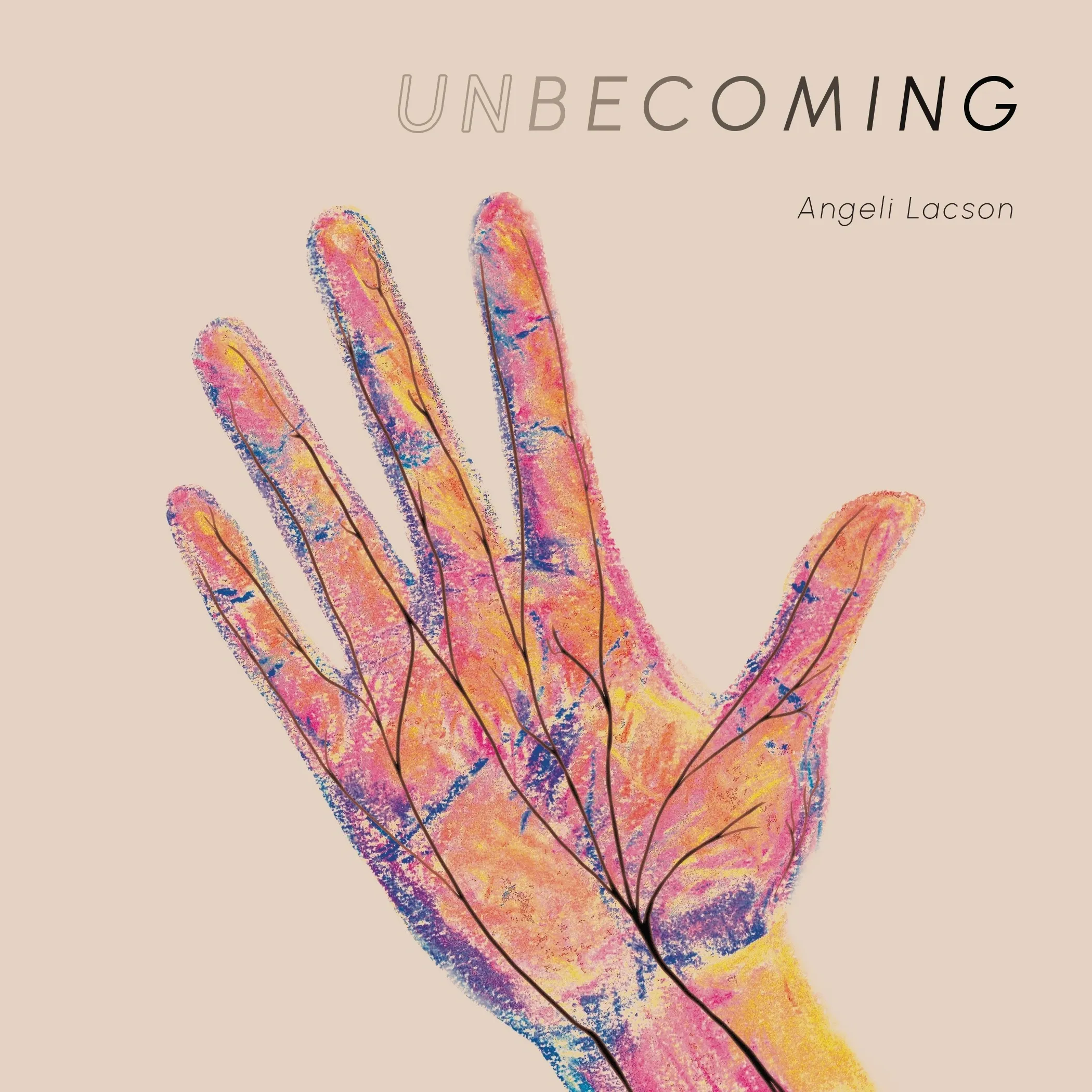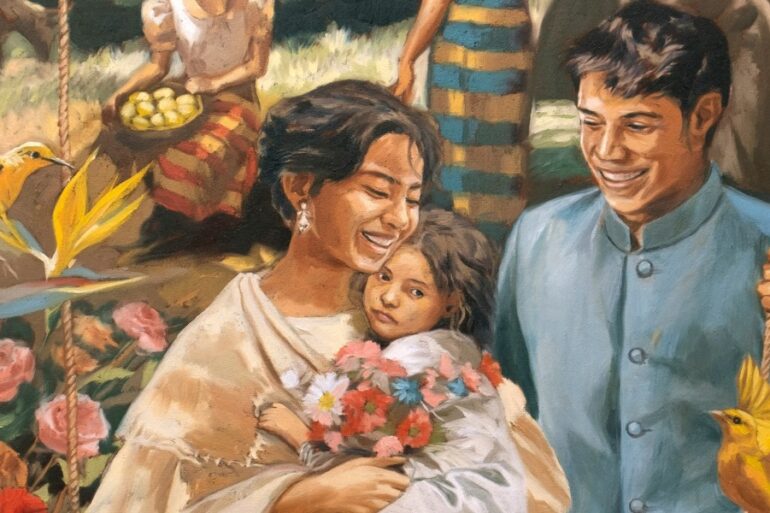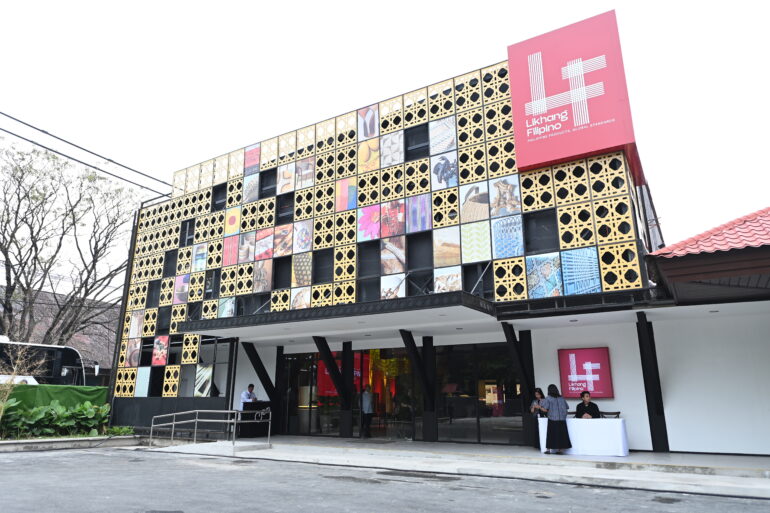Lacson reckons with the particularities of disability while resisting the simplistic demands of representation.
“Taking the train in Metro Manila can be an obstacle course,” reads the opening statement of a Rappler accessibility report published last August, “involving jam-packed carriages, snaking lines of passengers, and mad dashes up staircases.” It’s an unfortunate yet familiar scene for anyone who has endured public transportation in the Philippines. “But for persons with disabilities, it is almost impossible to commute alone.”
The country’s inadequate train networks, as spotlighted by the report, signifies more than just an access issue for persons with disabilities, but also a historically systemic one. “Since the register of access is of societal integration,” Angeli Lacson writes in her debut collection Unbecoming, “its language fails to capture uncomfortable disability issues, including the historical parallels between psychiatric confinement and incarceration, as well as the wide swath of incarcerated persons who are disabled or ill.”



To live life as a person with disability in the Philippines is to withstand a range of discriminations and prejudices, and yet the marker of disability is not as stable a category as one might think. Throughout Unbecoming, Lacson reckons with the particularities of the category while resisting the simplistic demands of representation. What she tries to do instead is to root her perspective on news reports, conversations with friends, and academic and literary texts, in turn shedding light into disability’s embeddedness in political, social, and historical contexts. Lacson’s discerning eye (she recently completed a Comparative Literature degree from UP Diliman) is put to good use across the book as she scrutinizes the language, narratives, and conventions deployed to describe disability.
For instance, early into the book, we are given insight into, as Lacson describes, “the most infamous madwoman in Philippine literature,” Sisa from Jose Rizal’s Noli me Tangere. Her monument looms over the National Center for Mental Health (NCMH), a state-run psychiatric hospital whose norms, Lacson attests to, are confinement and the subsequent loss of personal autonomy. Sisa’s madness, for the author, cannot be divorced from the novel’s broader themes of colonial conquest. “Sisa dies in the forest,” Lacson observes, “an inchoate space beyond colonial control.”



Through this series of notes, Lacson weaves together a vast web of references that testify to her wide-ranging taste. But more importantly, it signals a careful engagement with disability and its implications for the postcolonial subject. The result is an impressive—and admittedly breathless—run-through of theory and literary criticism that teeters on the edges of overexplanation. She draws on Lauren Berlant, Elaine Castillo, Aime Cesaire, Lennard Davis, and Susan Sontag, just to name a few of her intellectual touchpoints. And Lacson doesn’t stop there: she incorporates political and journalistic reportage, from the Duterte administration’s militarized COVID 19 response to the death of peasant leader Joseph Canlas, as well as probes into the living conditions of the NCMH.
It’s a daring venture, no doubt, and as I read and reread the book, I found myself pausing for considerable amounts of time in order to absorb the complexity of Lacson’s arguments. One potential defect of this approach is the effacement of the author’s specifics, the performance of intellect acting as a shield. That restraint, however, goes in line with the author’s reticence for representing persons with disability as a whole.
“Several times I have been sought out and addressed (both overtly and implicitly) in terms of my experience of disability, which was then conflated with the capacity to ‘represent’ the interests and concerns of disabled Filipinos,” Lacson recounts in one fragment. “But the extent to which I ‘represent’ the realities for disabled people is not only complicated by a social and political system in which I occupy a privileged position; it also relies upon the marginality of the vast majority of disabled Filipinos, whose invisibility, a byproduct of injustice, presumes their inability to author their own stories on their own terms.”



Despite understanding the necessity to recognize the myriad realities of the predominant population of disabled Filipinos, I’m nonetheless most drawn to Unbecoming when Lacson leans into her own stories, tells her experience unadorned by the machinations of theory. A lyric cycle appears towards the end of the book, alternating empty space with reflections on the aftermath of her illness. Lacson describes her body as a “hollow receptacle of shock.” Her sentience reduced to “an appeasement of wounds…the visible—the head on the edge of the sickbed.” This tenor, a faintly abstract and poetic voice, is a showcase of the book’s more tender standpoint.
Scattered throughout the book in bits and pieces, these lyrical evocations perhaps make the clearest case for Lacson’s overarching argument: that our bodies are our access points to experience, and that disability, in its rupturing transformation of the body, opens one to the discovery of new forms of belonging and care. “While disability and mental illness can feel incredibly lonely,” Lacson writes, “I have likewise discovered that there are far more of us than I ever knew or could imagine—new communities even in loss.”
As she draws her reflections to a close, Lacson turns to affect theorist Lauren Berlant and her conception of the future life: a time persistently in process, held together by a collective gathering and wandering towards an uncertain path. “We belong to the world,” she concludes, “and to each other.”








